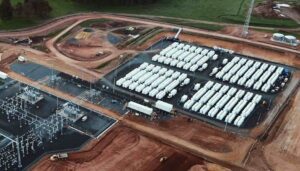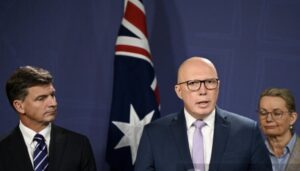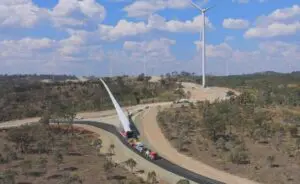Australia’s fossil fuel sector has emerged as one of the largest financial backers of political parties over the last two decades, but we may never know the true extent of the influence purchased, with some of Australia’s largest resources companies using loopholes to hide their donations from public scrutiny.
New analysis has been prepared by the Centre for Public Integrity, which has reviewed the last 20 years of public disclosures of political donations, found that the resources sector has been by far the largest financial contributor to Australia’s political parties, despite many mining companies promoting policies that rule out direct political involvement.
According to the analysis, the resources sector poured $136.7 million into political parties and lobby groups over the last two decades, more than two-and-a-half times more than the property sector, which was the next largest sector in terms of political donations.
Clive Palmer is responsible for the bulk of donations from the resources sector, having used his business interests in Mineralogy and Queensland Nickel to direct more than $116 million into his own political campaigns, including spending $89 million campaigning during the 2019 federal election.
Aside from Clive Palmer’s forays into the political space, it has been the Liberal-National Coalition that has been the largest beneficiary of the resources sector, with the analysis finding the Coalition to have received $15.2 million, more than triple the $4.9 million received by the Labor party.
“The resources industry is by far the largest donating industry. Together they have donated 2.5 times more than property developers,” Chair of the Centre for Public Integrity, Anthony Whealy QC said.
“Donations can lead to greater access and influence. Companies that have policies against making donations are still having influence by donating to political campaigners and peak bodies. These organisations advocate and make donations on their behalf.”
“We need urgent reform to cap donations and spending, and make all donations transparent to voters in real time,” Whealy added.
Woodside, Santos and AusGold Mining Group all also donated more than $1 million directly to political parties over the last 20-years, most of which was split between the Liberal, National and Labor parties.
Other mining majors, including BHP, Rio Tinto, Glencore and Anglo American Metallurgical Coal, were substantial political donors but opted for a less direct route to financing political parties. The major mining groups directed the bulk of their political donations into campaigning groups, including the Minerals Council of Australia, Coal21, and the Business Council of Australia.
These lobby groups have undertaken a number of politicised campaigns, predominantly in support of the fossil fuel industry, on behalf of their financial backers, with pro-coal groups the Minerals Council of Australia and Coal21 sharing $35 million in donations between them.
In the case of the Minerals Council of Australia, the lobby group has also served as an intermediary for donations between the resources sector and political parties, passing on more than $33 million through donations to political parties, around two-thirds of which was directed to the Labor party, with the remaining third directed to the Liberal-National Coalition.
Companies like BHP and Rio Tinto, which have each sought to defend their record on climate change policy, have faced growing pressure from environmental groups and shareholder advocates to withdraw from their involvement in lobby groups like the Minerals Council, due to its strong pro-fossil fuel advocacy.
The Centre for Public Integrity argued that this practice potentially obfuscated the underlying source of these donations, with groups like the Minerals Council effectively allowing the major mining companies to financially contribute to the major parties, without being seen to do so directly – even when the company has a stated policy against donating to political parties.
The Centre for Public Integrity, which undertakes research into the integrity of public institutions and is lead by a number of high profile members of the legal profession, raised concerns about the influence the resources sector was gaining over Australia’s major political parties, by serving as such a substantial source of cash.
“The enormous amounts donated by a sector whose existence depends on the issuing of government permits is highly problematic for public trust in the democratic process. After all, impartiality in decision-making must not only exist but also be seen to exist,”
One limitation of the analysis is the significant value of political donations that are not publicly disclosed. While stronger disclosure requirements have been introduced at a State and Territory level, many donations to federal political parties fall below a very high disclosure threshold, currently set at $14,000. This has meant that around one-third of the money donated to federal political parties has never been disclosed publicly.
The Centre for Public Integrity said the results of the analysis highlight the need for reforms to Australia’s political donation disclosure system, including through the introduction of donation caps on individuals and businesses, as well as significantly lowering the disclosure threshold to ensure a greater proportion of political donations are made public.










